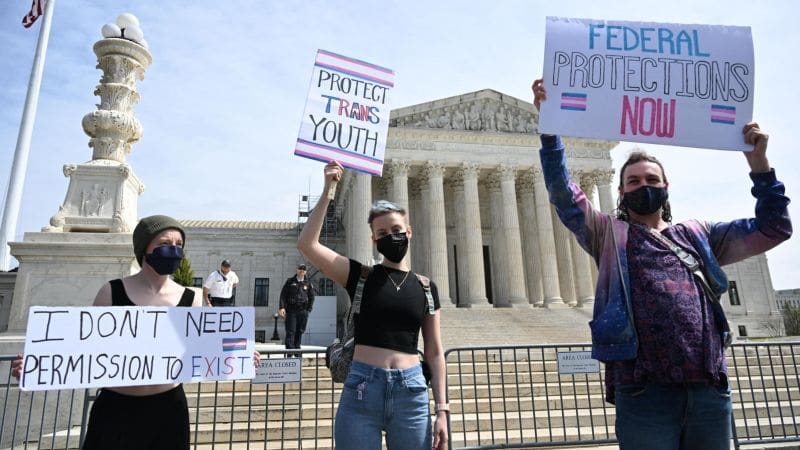The US Supreme Court is set to address a contentious issue involving transgender rights as it reviews a Tennessee law banning gender-affirming care for minors. This case, US v. Skrmetti, challenges the 2023 law, questioning its constitutionality concerning sex discrimination under federal law. The outcome could significantly impact similar laws nationwide.
The Tennessee law, signed by Governor Bill Lee in 2023, prohibits hormone therapy and puberty blockers for minors, with penalties for doctors who provide such treatments. Although the law excludes gender-affirming surgeries, it forbids care that helps minors transition according to their gender identity unless for specific medical exceptions like congenital defects or early puberty. Republican proponents argue that minors cannot fully grasp the long-term consequences of these procedures, claiming a state interest in encouraging minors to accept their biological sex.
This pivotal case for transgender rights comes at a time of increasing restrictions on transgender individuals, especially minors, by Republican-led states. The case will test whether transgender people are entitled to federal protections against discrimination. Legal experts emphasize the importance of this case, given the widespread state legislation targeting transgender youth.
Previously, the Supreme Court addressed a related issue in the 2020 case Bostock v. Clayton County, ruling that federal law prohibits workplace discrimination based on sex, which applies to transgender workers. How the court applies this precedent outside the workplace will be crucial in this case. The high court’s decision may influence future laws concerning transgender rights extensively.
L. Williams, a minor involved in the case, expressed that gender-affirming care has been transformative for her, improving her mental health during adolescence. The ban has compelled her to seek care out-of-state, disrupting her education and daily life. She views the Supreme Court’s decision as critical for her well-being and that of others in similar situations.
The legal debate extends to the level of scrutiny the law should face. The Biden administration argues that the law fails heightened scrutiny, which requires states to prove that the law is substantially related to an important government interest. Alternatively, Tennessee contends that the law is an age-based distinction, permissible under the equal protection clause.
Medical associations back gender-affirming care, linking its denial to increased suicide rates among transgender youth. Tennessee, however, describes these treatments as risky and inadequate for minors, emphasizing the need for informed consent.
The Supreme Court’s makeup and past rulings on related issues make it an unpredictable arena for this legal battle. Observers highlight Justices Roberts and Gorsuch, whose previous decision in Bostock recognized discrimination based on sex.
Chase Strangio, representing transgender minors, will argue before the Supreme Court, marking a historic moment as the first known transgender person in that position. The Biden administration’s Solicitor General, Elizabeth Prelogar, will also present arguments, supporting the minors’ case against the Tennessee law.
The decision of the US Supreme Court in this case will have far-reaching implications for transgender rights across the United States. The court’s ruling will potentially redefine the boundaries of federal protection for transgender individuals, influencing future legislation and legal interpretations.
Source: CNN














